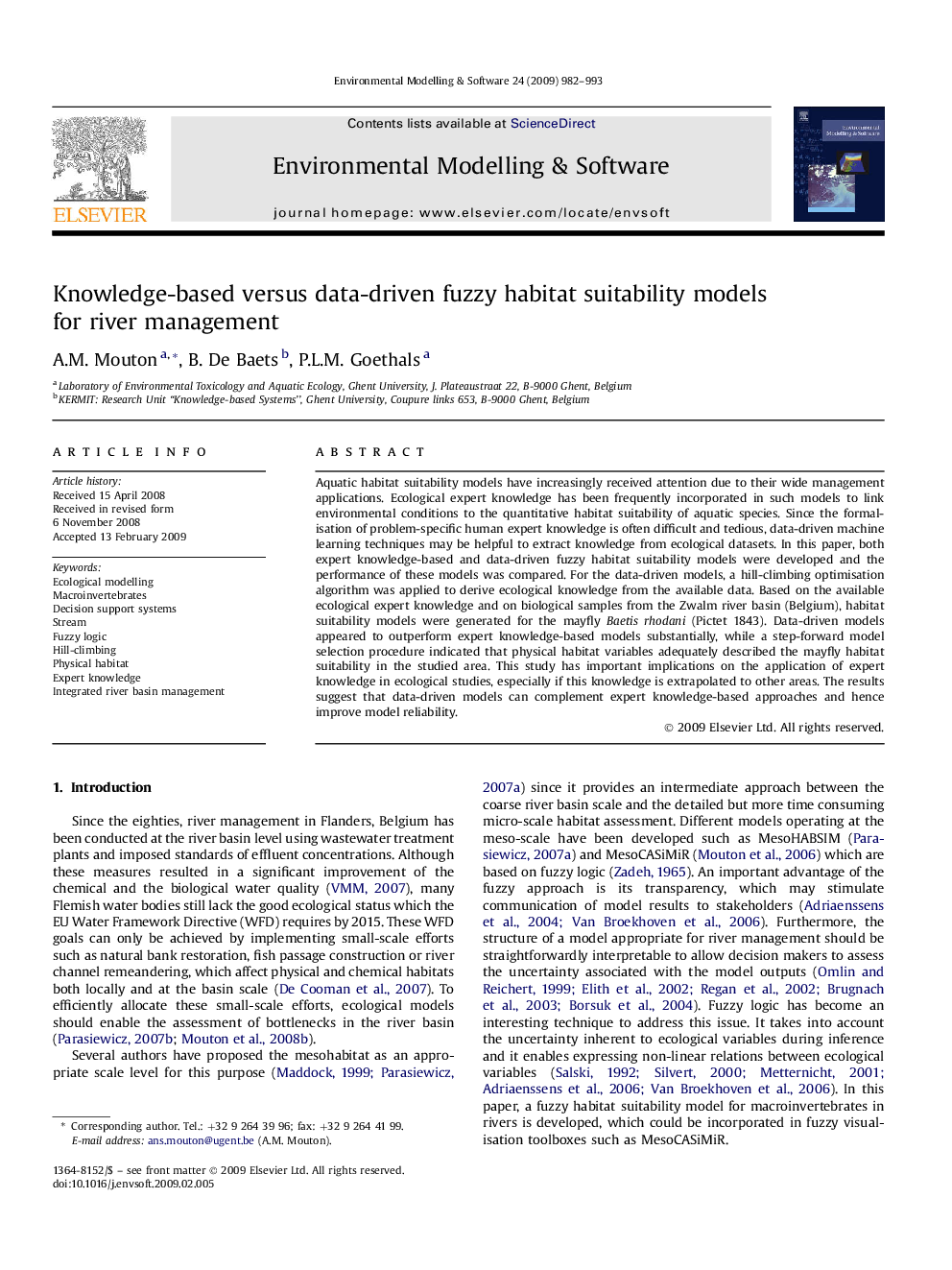| Article ID | Journal | Published Year | Pages | File Type |
|---|---|---|---|---|
| 570326 | Environmental Modelling & Software | 2009 | 12 Pages |
Aquatic habitat suitability models have increasingly received attention due to their wide management applications. Ecological expert knowledge has been frequently incorporated in such models to link environmental conditions to the quantitative habitat suitability of aquatic species. Since the formalisation of problem-specific human expert knowledge is often difficult and tedious, data-driven machine learning techniques may be helpful to extract knowledge from ecological datasets. In this paper, both expert knowledge-based and data-driven fuzzy habitat suitability models were developed and the performance of these models was compared. For the data-driven models, a hill-climbing optimisation algorithm was applied to derive ecological knowledge from the available data. Based on the available ecological expert knowledge and on biological samples from the Zwalm river basin (Belgium), habitat suitability models were generated for the mayfly Baetis rhodani (Pictet 1843). Data-driven models appeared to outperform expert knowledge-based models substantially, while a step-forward model selection procedure indicated that physical habitat variables adequately described the mayfly habitat suitability in the studied area. This study has important implications on the application of expert knowledge in ecological studies, especially if this knowledge is extrapolated to other areas. The results suggest that data-driven models can complement expert knowledge-based approaches and hence improve model reliability.
